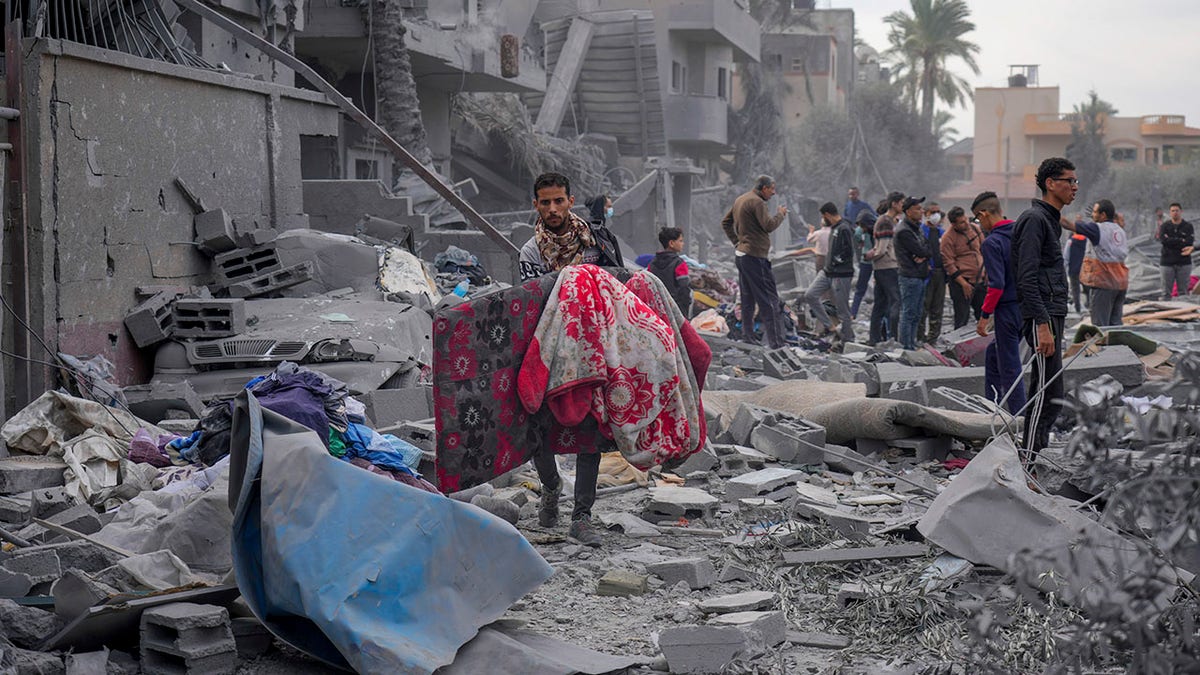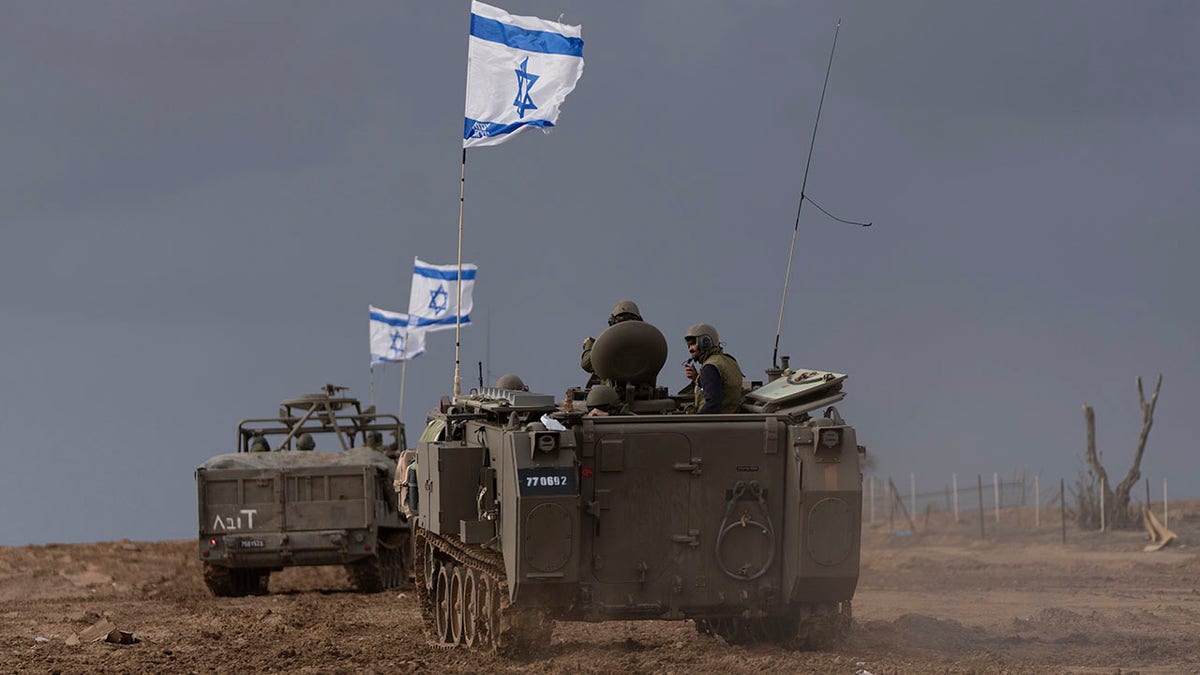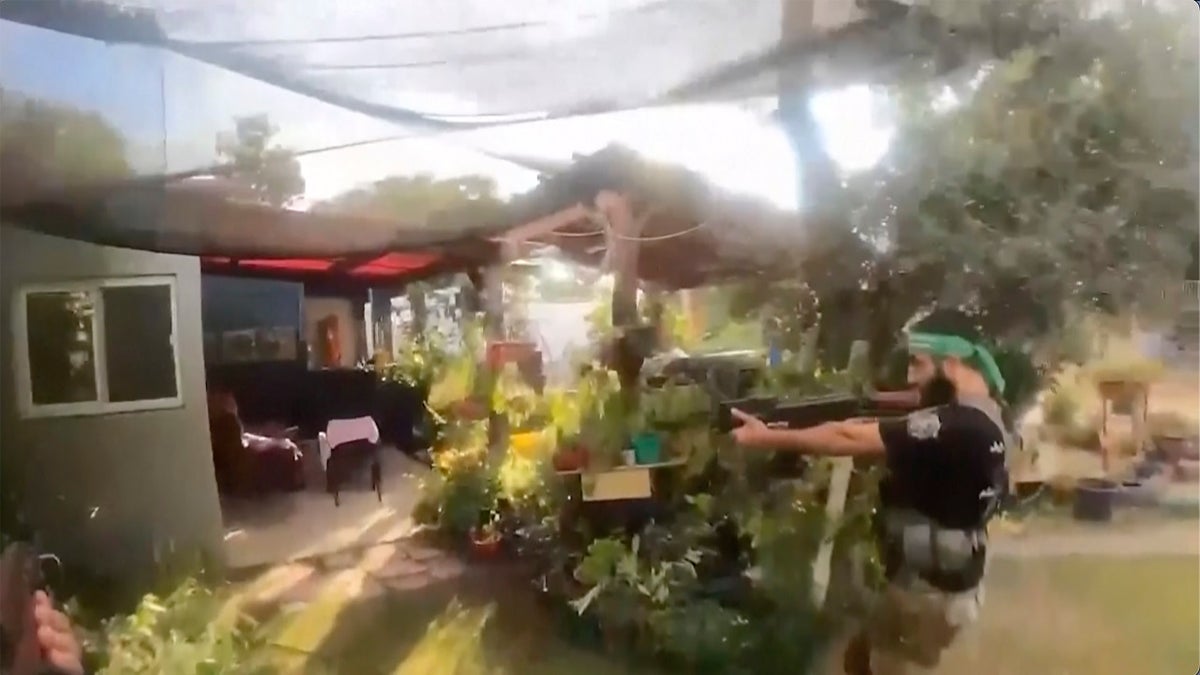Desperate Israelis waiting to hear whether relatives will be released by Hamas
Efrat Machikawa and Gili Roman join 'FOX & Friends' after a deal was reached between Israel and Hamas for 50 hostages to be released.
Israel and the Palestinian terrorist group Hamas reached a temporary cease-fire deal Wednesday that includes the release of Israeli hostages being held in the Gaza Strip.
Here is what to know about this deal on the 47th day of the Israel-Hamas war.
When is the cease-fire expected to begin?
The agreement is set to go into effect Thursday at 10 a.m. local time (3 a.m. ET), according to Hamas. Israel has not yet confirmed that exact timing.
How did Israel and Hamas come to a cease-fire deal?
The Middle Eastern nation of Qatar played a key role in brokering the deal between Israel and Hamas.
Qatar’s government said in a statement last night that both sides "have agreed to this deal after weeks of intense negotiations" and that it "led the mediation efforts in coordination with the United States and regional partners, for whom we express our gratitude," specifically mentioning Egypt.
LIVE UPDATES: ISRAEL AT WAR WITH HAMAS

Palestinians in Deir al Balah in the Gaza Strip look at destruction caused by Israeli airstrikes on Wednesday, Nov. 22. (AP/Hatem Moussa)
How long will it take to remove hostages from the Gaza Strip?
The first of 50 hostages – including three Americans – are expected to be released from captivity in Gaza starting at 10 a.m. local time Thursday. The hostages are expected to be released in groups of 10-12 over the course of four days, if the cease-fire holds.
Fox News correspondent Jeff Paul reports that in previous releases, the hostages first went through a border crossing in the city of Rafah, at the southern end of the Gaza Strip, into Egypt.
They were then flown back to Israel to be evaluated at hospitals before talking to Israeli security forces about what they had seen and been through, according to Paul.
The office of Israeli Prime Minister Benjamin Netanyahu said "the release of every additional ten hostages will result in one additional day in the pause" in the fighting, which is currently expected to last four days.
In exchange for Hamas giving up its hostages, Israel in return is sending back 150 Palestinian prisoners.
BIDEN ADMINISTRATION REACTS TO TEMPORARY CEASE-FIRE DEAL BETWEEN ISRAEL, HAMAS

Israeli soldiers travel in armored military vehicles along Israel's border with the Gaza Strip on Monday, Nov. 20. (AP/Ohad Zwigenberg)
What will happen between Israel and Hamas after the cease-fire?
Both sides have indicated that the war isn’t over following the conclusion of the temporary cease-fire, however long it ends up being.
Netanyahu’s office says "the Government of Israel, the IDF and the security services will continue the war in order to return home all of the hostages, complete the elimination of Hamas and ensure that there will be no new threat to the State of Israel from Gaza."
Meanwhile, Hamas said "At the time when we announce the arrival of a truce agreement, we affirm that our victorious brigades and all our resistance factions will remain the protective shield and defender of our people until the occupation and aggression are defeated."
"We promise our people that we will remain loyal to their blood, their sacrifices, their patience, their bond, and their aspirations for liberation, freedom, the restoration of rights, and the establishment of an independent Palestinian state with Jerusalem as its capital, with God’s will," Hamas added.
The war on Thursday is in its 47th day. It began on Oct. 7 when Hamas launched a surprise attack on Israel.

Hamas launched a surprise attack on Israel on Oct. 7, launching the war. (Israel Defense Forces via AP)
CLICK HERE TO GET THE FOX NEWS APP
Is the cease-fire temporary?
As of Wednesday, the cease-fire is only expected to last four days, but Israel suggested it could go longer if Hamas releases more hostages.
What else is part of the cease-fire deal?
Hamas says that Israel has agreed to stop surveillance flights over parts of Gaza for six hours a day from 10 a.m. to 4 p.m.
Humanitarian aid will also begin to flow into Gaza more freely as part of the deal.
Fox News’ Elizabeth Pritchett contributed to this report.










































